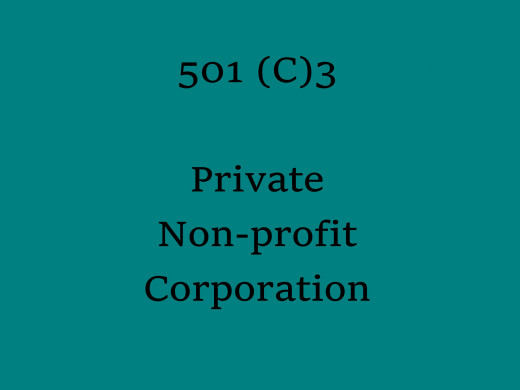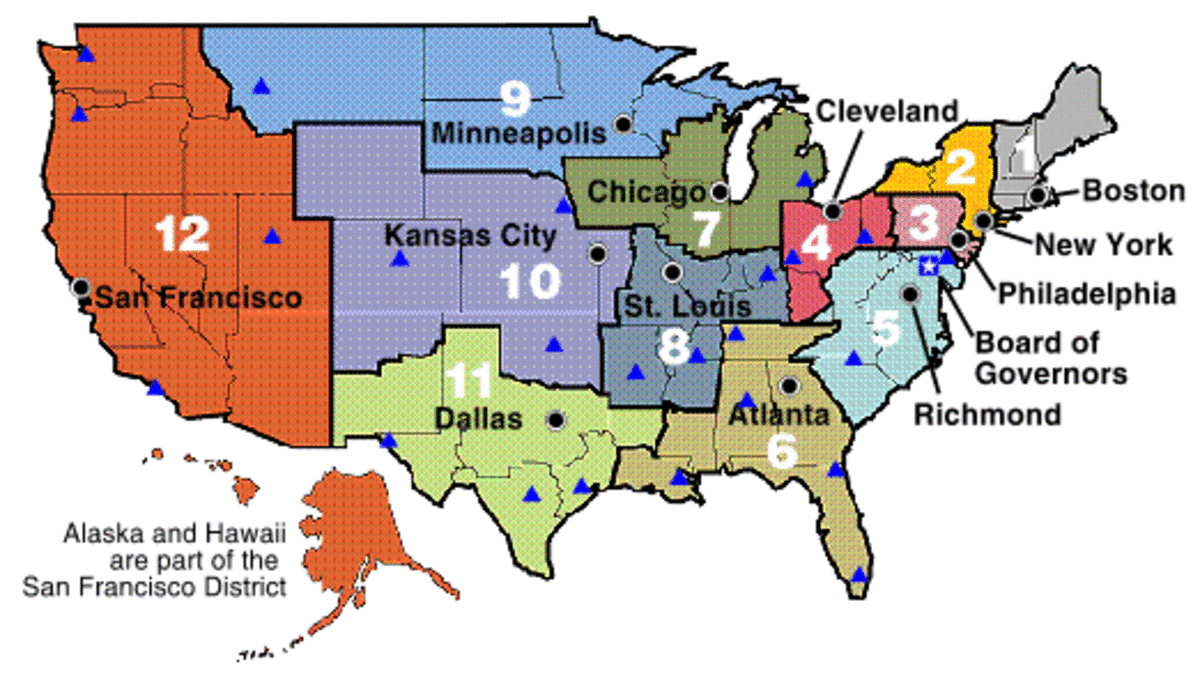Starting a Private Non-Profit Cooperation

Why Is This Important?
When I was helping a small local arts to group start a 501(c)3, I recognized the internal struggles of groups trying to re-organize themselves This was a small local group of artists who formed as a social group. After a few years, they decided to become more of a professional organization. Working with them, I quickly realized there is a need for easier access to this type of information.
Before writing this article, I wanted to do my due diligence, to ensure that I would not be duplicating an already existing article. In the world of research projects and grant proposals, this activity is called doing a "review of the existing literature". In my search, I found a lot of information describing and publicizing many existing and worthwhile non-profit organizations, but found nothing about non-profits in general. I found nothing about starting a non-profit, nothing about managing a non-profit, nothing about management of grant budgets. This is my contribution to "the literature". I hope you find it to be helpful.
Non-profit "How to" Series
This article is the second in a series on starting and working with non-profit organizations. The lenses in this series are:
1. How to Create a Mission Statement
2. Starting a Private Non-Profit Cooperation [501 (c)3] -- you're reading it now
3. Building a Non-profit Board of Directors -- still a work in progress
4. Writing a Grant Proposal -- still a work in progress
This is a simplified overview of the primary things to consider when thinking about starting a private non-profit corporation. There is much more information available. Please find someone locally who is trained and experienced to advise you during this process.

What Is A 501(c)3?
"501(c)3" is the IRS code for a private non-profit corporation, and it makes your organization tax-exampt. Besides the obvious benefit, being tax-exempt enables you to seek grant funding and corporate donations.
Funding agencies' grant applications, as well as corporate grant applications will require that you provide your tax I.D. number. Without the tax-exampt status, you will not have the appropriate tax I.D., and therefore, must rely only on private donations. Unfortunately, if you are not a 501(c)3 organization, those private individuals cannot claim their generous donations on their income tax returns.
Having the 501(c)3 status will enable individuals to claim their donations on their personal tax returns and, therefore, may serve to increase the amount of private donations or the number of private donors. UPDATE: those donations may no longer be deductible because of the new tax laws enacted in 2017.
It's not "like" running a business. It is running a business.
The Pros and Cons of Starting a 501(c)3
There are, of course, responsibilities that go along with these benefits. Below are some of the pros and cons that should be carefully considered before making the decision to apply for 501(c)3 designation as a tax-exempt organization. You will note that budgetary items are listed under both. Pros, because this protects the organization. Cons, because it is a lot of work, and can feel as if the government is constantly looking over your shoulder -- it is. More than ever, the IRS is scrutinizing private non-profits. You should be prepared to be audited at any given time.
The Pros
- Requires that you have a formal board of directors who:
- can help with fundraising, publicity, recruitment of volunteers;
- will share fiduciary responsibility;
- will vote on any decision if and only if a quorum is present (your quorum is up to you, and will be stated in your bylaws).
- Requires that you keep very careful financial records, including:
- that you have a projected annual budget that is approved by the membership;
- that you do not overspend that budget;
- that you have accurate written treasurer's reports at all meetings.
- Allows you to apply for grant-funding and corporate donations.
- May give your organization a more professional standing and greater visibility in the community.
- Requires that you choose a logo and use it on all materials representing the organization.
The Cons
- Requires that you have a formal board of directors who:
- will have hiring, firing, supervisory, and disciplinary control over the CEO;
- could someday take the organization in a direction different from what you desire.
- Requires that you keep very careful financial records, including:
- that you have a projected annual budget that is approved by the membership;
- that you do not overspend that budget;
- that you have accurate written treasurer's reports at all meetings.
- Requires that you file tax returns with the IRS annually.
- Requires that you be prepared to be audited at any time.
- Requires strict adherence to your constitution and bylaws at all times.
Adding Up the Budget Items

Why Do You Want to Start a Private Non-profit Corporation?
You will be running a business, you know.
So, ask yourself why you want to do this. Even if you never have to tell anyone else, you need to know the reason. You need to believe completely in the project -- it will become "your baby". In and of itself, the fact that you can't find a job elsewhere is not a sufficient reason to go down this road.
It's not like running a business. It is running a business. There is a lot of paperwork involved, and you should be prepared for an audit at any given time.
This requires preparing a projected budget, not only for the entire organization, but for each separate program and fundraising project. There is a huge amount of paperwork involved in running any business. This is just a small portion of the types of records that must be kept. If you apply for grant funding, there will be annual reports, and sometimes quarterly reports, depending on the funding agency. Accurate record-keeping is mandatory. You will want a good accountant and a lawyer on your board of directors. I will talk more about boards of directors in my future article entitled, "Building A Non-profit Board of Directors".
Be sure to consider carefully the reasons you are thinking of starting a non-profit organization. Be brutal with yourself/yourselves in examining your own motives, and whether you really do want the governmental oversight and fastidious record-keeping requirements that will be coming your way.
One of the first things to do is to
create your mission statement

Make Good Notes

Create a Mission Statement
Once you have decided why you want to start a non-profit, and what it's purpose will be, the next thing to be determined is your mission statement.
A mission statement is a one-sentence statement. It should be written in one of two ways:
1. The mission of XYX organization is to ....
2. Mission Statement: To....
There should be no exceptions to this rule, but there are. I've seen multi-sentence paragraphs called mission statements. The word statement is not plural. This is not the place to go on and on about the purpose or good qualities of your organization.
Worse, I've seen what is actually a description of the organization referred to as a mission statement. This is not the place to describe your church, school, or arts organization. It is the place to offer a specific, narrowly-focused statement of the reason your organization exists.
There Will Be Personality Conflicts
If you are working with a group forming an organization, or an existing organization that has decided to apply for non-profit status, you will be working with various personalities. This is not necessarily a bad thing. It helps with checks and balances, and gives people a way to bounce ideas off each other. Ideally, this paves way for the examination of many new ideas.
Occasionally though, there will be a person or persons with his or her own agenda. This has the potential for de-railing your entire project. If the project is worthwhile, it should be protected against this. One way to provide this protection is to insist that the group works together to ensure that everyone has an equal voice. If the group working on the project is a sub-group of a larger organization, another way to protect the project is to maintain openness and transparency about all activities in front of the entire organization. At the beginning of the first meeting, the facilitator, CEO, etc., should state that for this to succeed, everyone including him/her must check their egos and politics at the door.
Building an Effective Board of Directors
Resist the urge to fill it with your friends and relatives, and married couples.
Your board of directors is one of the most important components of your organization. After you choose them, and demonstrate to them your purpose and desired direction, from then on, they will set the tone and direction of policy, fundraising, etc. Therefore, the people who fill the seats on your board should be chosen wisely, with much forethought and planning.

This content is accurate and true to the best of the author’s knowledge and is not meant to substitute for formal and individualized advice from a qualified professional.
© 2011 MariaMontgomery








